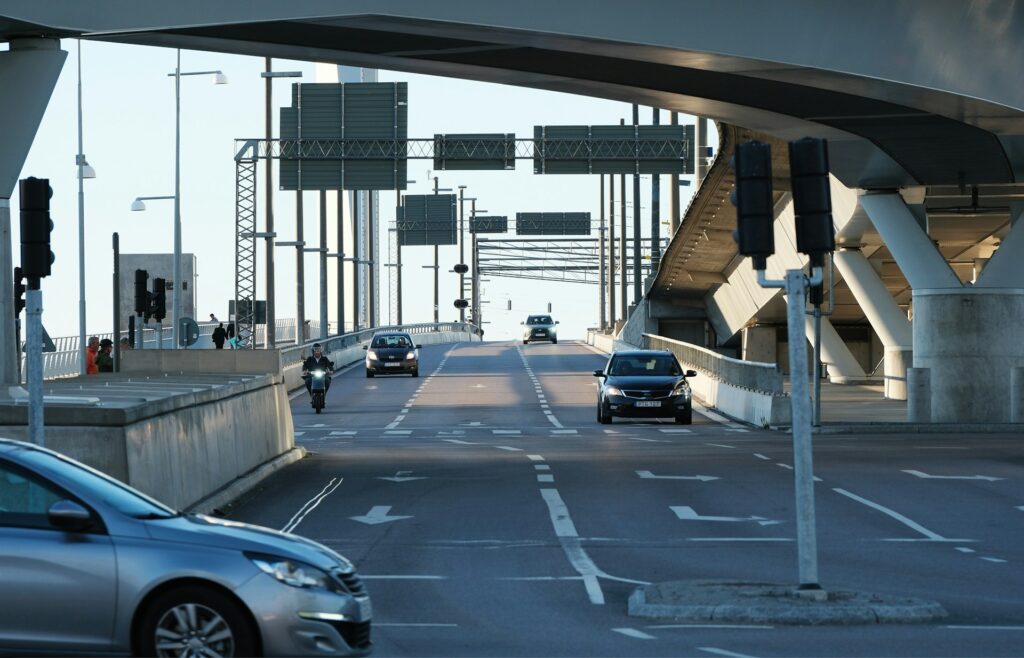Driving in Europe can be an exciting and convenient way to explore diverse landscapes, vibrant cities, and historical landmarks. However, for drivers with medical conditions, navigating the roads across European countries requires more than just understanding the rules of the road—it also means being aware of medical driving restrictions that may affect your ability to drive.
These restrictions vary from country to country and may be influenced by factors such as your medical history, the medications you’re taking, or your physical and cognitive abilities. Here’s what you need to know about medical driving restrictions in Europe to ensure a safe and legal driving experience.
Medical Fitness To Drive: An Overview
In Europe, each country has regulations in place to ensure that drivers are medically fit to operate a vehicle. These regulations are designed to protect the driver, passengers, and other road users. A key aspect of these laws is that individuals with certain medical conditions or those taking specific medications may be required to undergo medical assessments or disclose their condition to the authorities before getting behind the wheel.

Common Medical Conditions That Affect Driving
Several medical conditions can impact a driver’s ability to safely operate a vehicle. Some of the most common conditions that may require medical assessments or impose driving restrictions in Europe include:
- Epilepsy and Seizure Disorders: Drivers with epilepsy may face restrictions, particularly if they have had a seizure recently. Many European countries require drivers to be seizure-free for a specified period (usually 1 to 2 years) before they can legally drive.
- Vision Impairments: Poor vision is one of the leading causes of accidents. Drivers with vision conditions, such as cataracts, glaucoma, or macular degeneration, may be required to meet specific visual acuity standards, such as a minimum level of eyesight or the ability to pass an eye test.
- Heart Conditions: Heart-related issues, including arrhythmias, heart attacks, and strokes, may result in medical evaluations. A driver’s fitness to drive is often assessed based on their medical history and whether their condition could pose a risk of sudden incapacitation.
- Diabetes: Individuals with diabetes are required to disclose their condition if it could cause a loss of consciousness or impair their driving ability. In some cases, drivers may need to demonstrate that their condition is well-controlled before being permitted to drive.
- Mental Health Conditions: Conditions like dementia, schizophrenia, or severe depression may impact cognitive function and reaction times. Drivers with mental health conditions may need a medical evaluation to determine their fitness to drive.
- Musculoskeletal Disorders: Conditions such as arthritis or Parkinson’s disease can impair a driver’s physical ability to control a vehicle. Depending on the severity, some individuals may need special adaptations to their vehicle or restrictions on where and when they can drive.
It is important to supplement your car insurance with travel insurance for pre existing medical conditions.

Disclosing Your Medical Condition
In many European countries, it is a legal requirement for drivers to inform the relevant authorities about certain medical conditions that could affect their ability to drive. If you’re diagnosed with a medical condition that may impair your driving, you must notify your local motor vehicle authority (such as the DVLA in the UK). Failing to disclose a medical condition could result in fines, the loss of your driver’s license, or even legal action if an accident occurs.
Read: 5 of Portugal’s top road trips
Medical Assessments & Licensing
In some cases, drivers with medical conditions may be required to undergo a medical assessment before being granted or renewing their driving license. This assessment may include:
- Physical Examinations: To evaluate mobility, coordination, and overall physical fitness to drive.
- Cognitive Assessments: Especially for conditions that affect memory, alertness, or decision-making, such as dementia or after a stroke.
- Vision Tests: To ensure that drivers meet the legal eyesight requirements.
- Blood Tests: For conditions like diabetes, where regular monitoring of blood glucose levels may be required to demonstrate the driver is in control of the condition.
The results of these assessments will determine whether a driver can be issued or continue holding a driving license. In some cases, temporary restrictions or conditions may be placed on a license, such as limiting driving to daylight hours or requiring regular medical reviews.
Medication & Driving
Medication can have significant effects on a person’s ability to drive. In Europe, drivers are required to check whether the medications they are taking may impair their ability to safely operate a vehicle. Some medications, including certain antidepressants, antipsychotics, sedatives, or painkillers, can cause drowsiness, blurred vision, or impaired coordination. It’s essential to consult your doctor or pharmacist to understand how a prescribed medication could affect your driving ability.
In many European countries, you are legally required to inform the authorities if you are taking any medication that could impair your driving. If you’re unsure, always err on the side of caution and avoid driving until you are confident that you are safe to do so.

License Renewal & Reassessment
For individuals with medical conditions, especially those affecting the elderly, driving license renewals may come with additional requirements or reassessments. In several European countries, drivers over a certain age (often 70 or 75) may be required to undergo periodic medical exams to ensure they remain fit to drive. These exams typically focus on vision, reflexes, and cognitive function.
Country-Specific Rules
Each European country has its own regulations and procedures for medical driving restrictions, so it’s essential to familiarize yourself with the rules in the specific country or countries where you plan to drive. Below are a few examples of how different countries handle medical driving restrictions:
- United Kingdom: Drivers are legally obligated to inform the DVLA if they have any medical condition that could affect their ability to drive. Medical assessments may be required for certain conditions, and drivers may be restricted to driving under specific conditions, such as only during the daytime.
- Germany: The German system requires drivers to inform the local authorities of medical conditions that could impair driving. Drivers may need to undergo regular medical checks depending on the condition, especially for those with chronic conditions like diabetes or neurological disorders.
- France: In France, medical driving restrictions depend on the severity of the condition. For example, drivers with epilepsy must be seizure-free for at least one year before being allowed to drive, and drivers with diabetes need to provide evidence that their condition is controlled.
- Spain: Spain requires medical evaluations for individuals with certain health conditions, such as heart disease or neurological disorders. Regular updates on your health status may be requested, and special conditions (like no night driving) can be applied.
Read: 5 tips for an incredible driving holiday in Norway

What Happens If You Violate Medical Driving Regulations?
Driving without meeting medical requirements or failing to disclose a medical condition can lead to serious consequences. Penalties may include:
- Fines: Fines may be imposed for failing to disclose medical conditions or for driving without the necessary medical clearance.
- License Revocation: In some cases, a driver’s license may be suspended or revoked if they are deemed medically unfit to drive.
- Insurance Issues: Driving without the proper medical clearance can also invalidate your car insurance. If you are involved in an accident, your insurance provider may refuse to cover the costs.
Adaptations & Special Licenses
For individuals with certain disabilities or medical conditions, driving is still possible with vehicle adaptations. European countries allow for modifications, such as hand controls for people with limited use of their legs or special mirrors and steering devices. Depending on your condition, you may need to apply for a special driving license to drive an adapted vehicle. These modifications must comply with national regulations and often require a medical assessment.
The Bottom Line
Driving in Europe with a medical condition requires careful attention to both the legal requirements and your own safety. Understanding the medical driving restrictions, disclosing relevant conditions, and ensuring that you are fit to drive will help prevent accidents and legal complications.
Each country in Europe has its own rules and guidelines, so it’s important to familiarize yourself with the local laws before hitting the road. Whether you’re planning a short trip or a long journey, ensuring your medical fitness to drive will make for a safer, more enjoyable European holiday.
*This article provides general information about medical driving restrictions in Europe and should not be considered legal or medical advice. Regulations vary by country and can change over time. Always consult with your healthcare provider and local driving authorities for the most current requirements regarding your specific medical condition. Failure to comply with medical driving regulations may result in legal consequences and invalidate your insurance coverage.*




